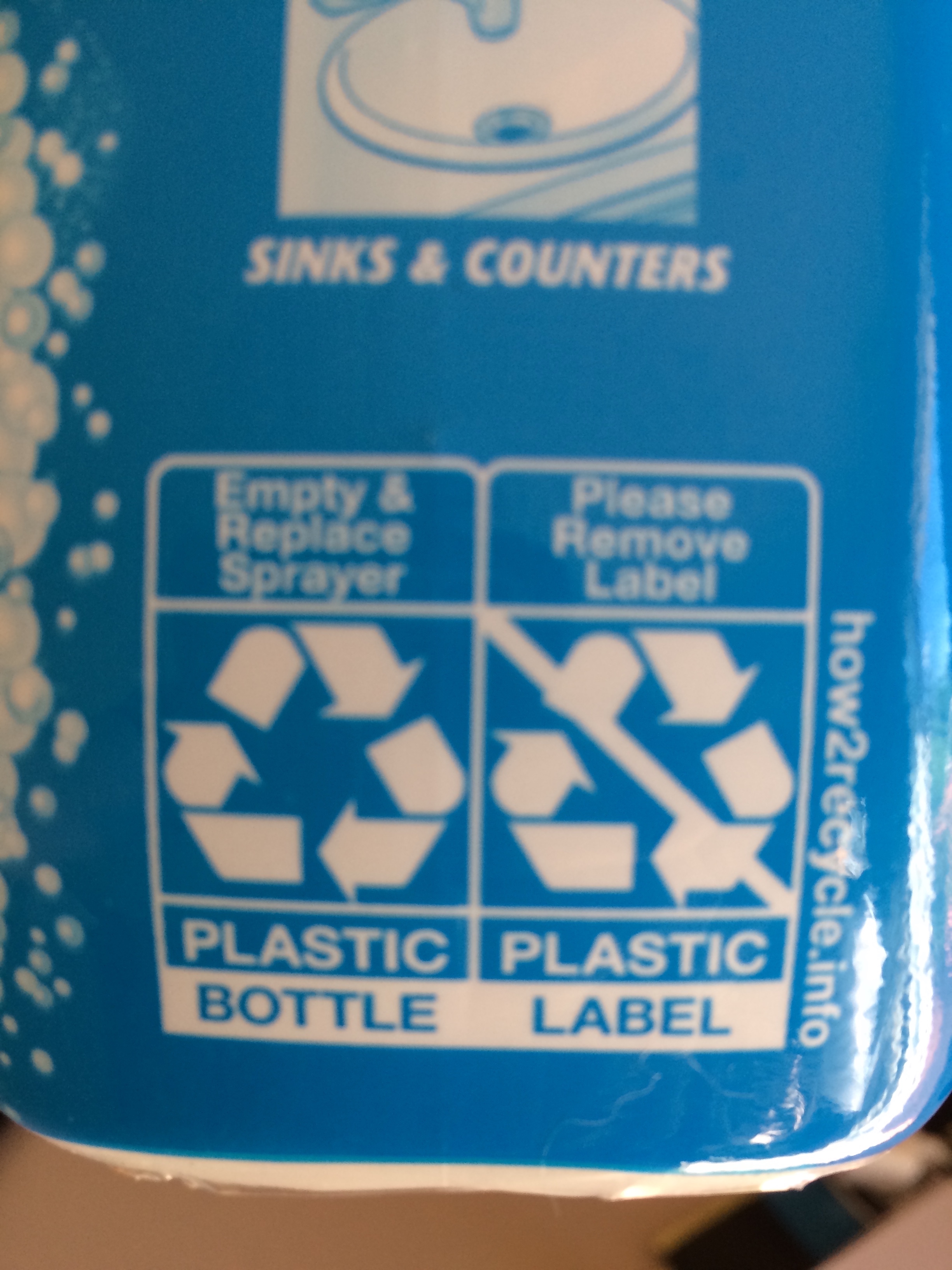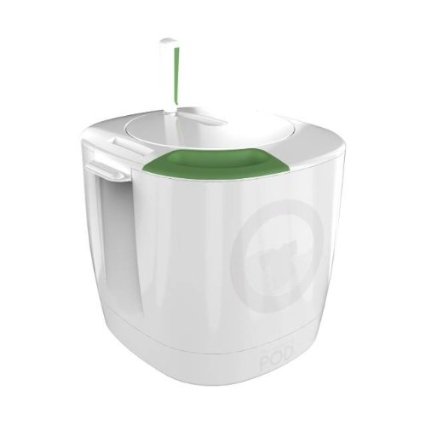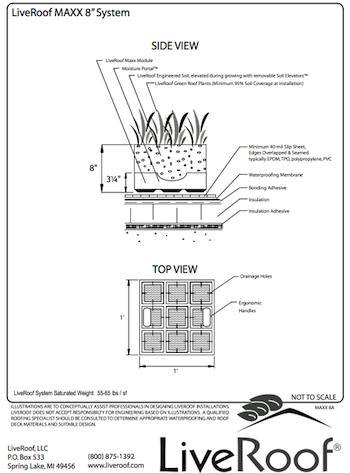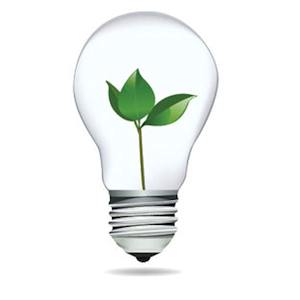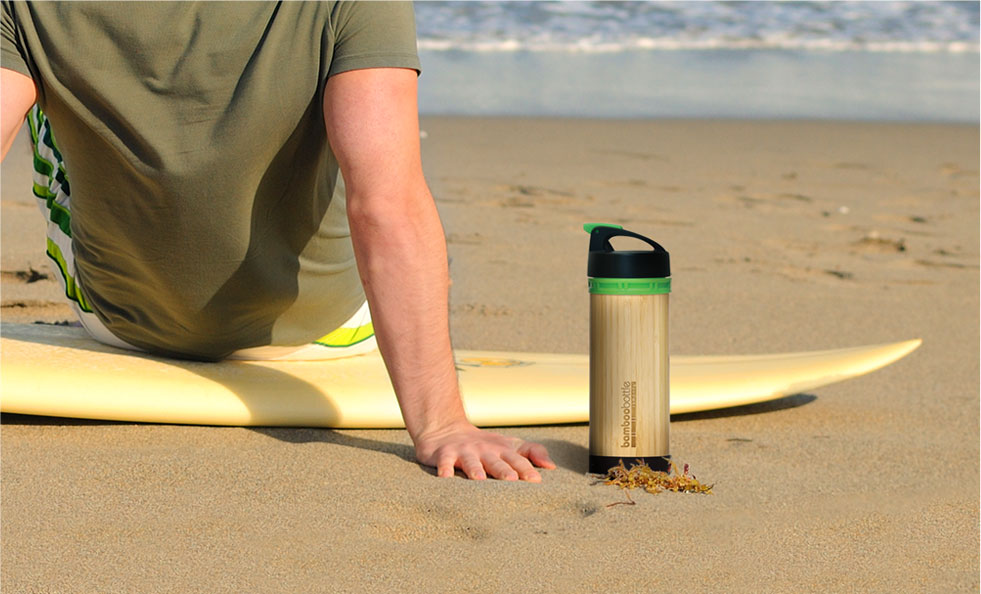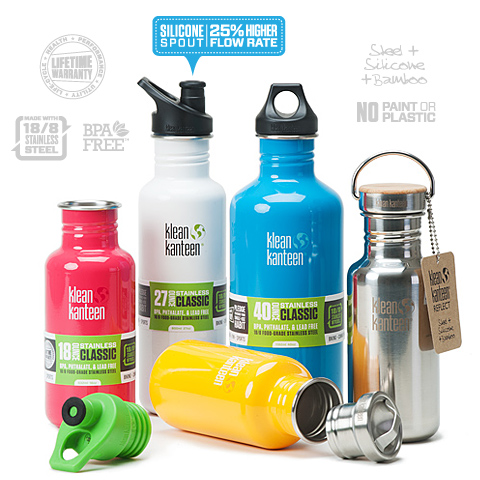Green on the Go: BYOB
20 years ago, most of us would have scoffed at the idea of actual laying down hard-earned money for a plastic bottle contained with nothing but water. Water, which is readily available for free at taps and fountains everywhere. Plastic water bottles are ubiquitous today; there's no arguing the health benefits of drinking more water, but the billions upon billions of water bottles Americans buy every year are having some not-so-good effects on our natural environment. Whether you're on a trip around the world, or simply on a stroll through the neighborhood, replacing disposable water bottles with a sturdy, reusable one is a surefire win for the planet.
The Problem with Plastic Bottles
What's the big deal about some simple plastic bottles? Plenty. For starters, there are lots of them. Americans purchase some 30 BILLION plastic water bottles every year. That's about 1,500 every single second. That's a lot of plastic. All that plastic requires three times more water to produce than the finished bottle actually holds. 17 million barrels of oil are used up in the production of plastic water bottles. That's enough fuel to power about a million cars for an entire year.
The environmental impacts of plastic water bottles doesn't stop with the bottles themselves. An awful lot of energy is required to pump water, fill bottles, and transport them from the bottling plant to wherever you buy it. One popular brand of water comes all the way from Fiji, halfway around the world, just to be used and discarded. 40,000 semi-trucks are necessary to transport all this water, and all this unsustainable plastic around the country.
No, it doesn't make much sense to us, either. But wait... we're not done with the bad news quite yet.
Environmental Impacts of Used Plastic Water Bottles
Thus far, we've only talked about the upfront environmental costs of plastic water bottles. But these are products designed to be used once, then discarded. When that happens, they cause even more problems.
Water bottles are made from PET plastic (polyethylene terephthalate...yuck!) PET is a completely recyclable plastic, but 80% of plastic water bottles don't get recycled at all... they get thrown out, or end up out in the world somewhere. And it doesn't biodegrade, it photodegrades. That means it gradually breaks down into smaller and smaller pieces of plastic, which ends up everywhere. The Ocean Conservatory estimates that every square mile of the ocean has 46,000 little pieces of plastic floating in it. Feeling guilty, yet?
Reuse, Reuse, Reuse...(and Recycle)
The answer to all of this plastic water bottle madness is quite simple: buy a quality reusable bottle, and use it. Then reuse it. All the time. The money you will save from not buying overpriced water in plastic bottles will cover the cost of a reusable bottle in no time.
When looking for a reusable water bottle (they also hold coffee, juice, milk, any liquid: another bonus!) make sure you get one that is made from clean, sustainable and healthy ingredients. Many plastic reusable bottles are made from plastics that some scientists have found not to be healthy for humans. Things like BPA and phthalates should be avoided.
Companies like Klean Kanteen and Bamboo Bottle Company make very high quality bottles in many shapes and sizes (including insulated) out of clean materials such as stainless steel, bamboo, and glass. No yucky stuff that can contaminate your liquids.
And yes, there will always be times when you're somewhere without your trusty reusable bottle, and you need water. Perfectly understandable. If you find yourself needing to buy a plastic water bottle occasionally, don't beat yourself up. Just don't ever throw that bottle out! PET water bottles can easily be recycled into a number of products: take that bottle home and recycle it, or look for recycling containers while you're out and about.
Find out more about our favorite reusable bottles, Klean Kanteen, HERE.Return to the Green on the Go main page!
comments powered by Disqus

